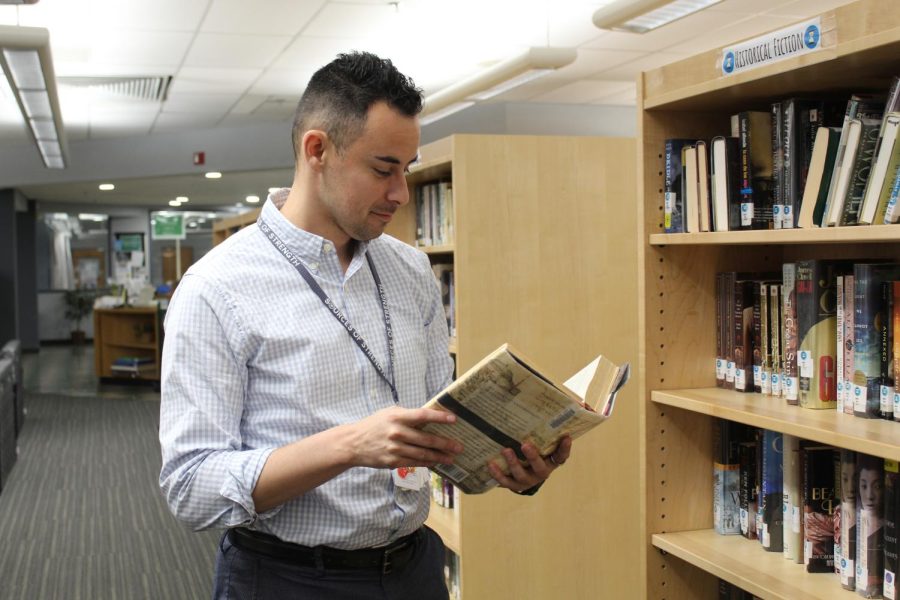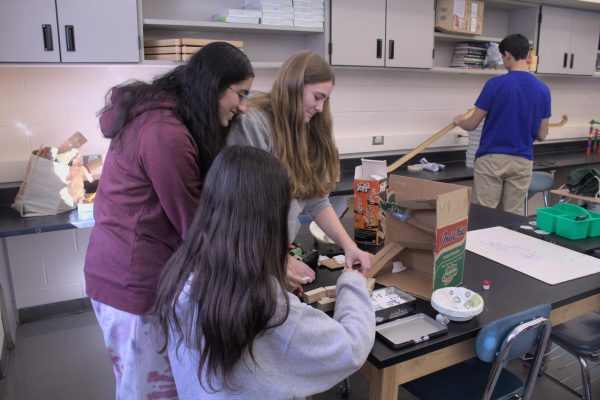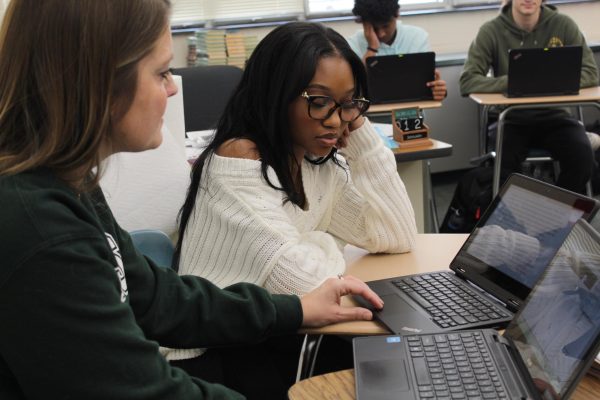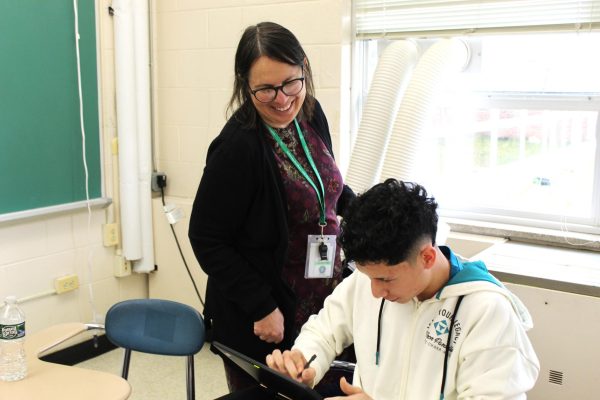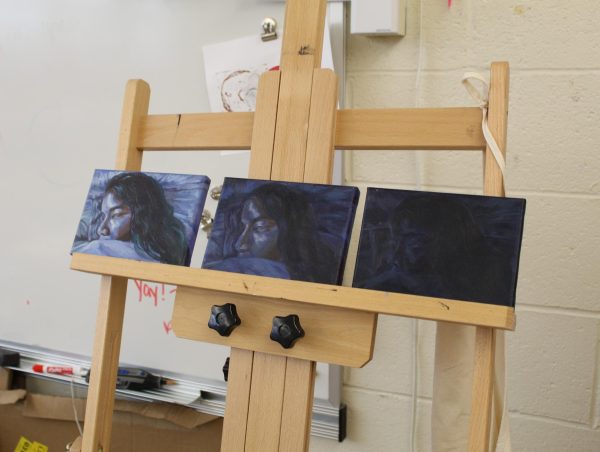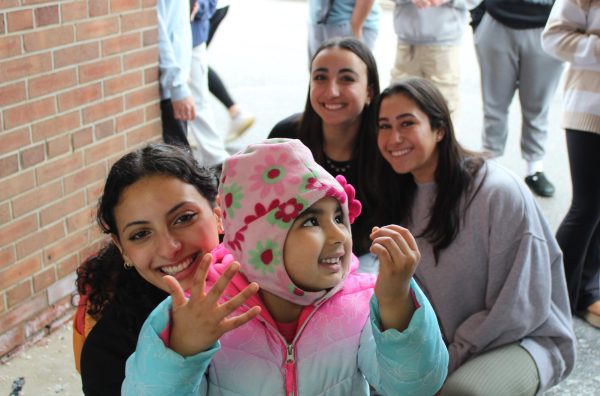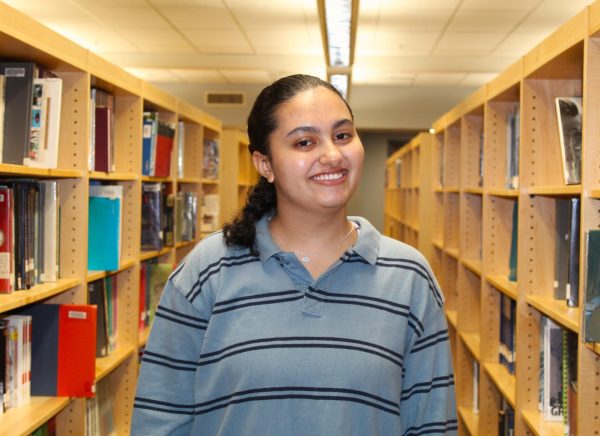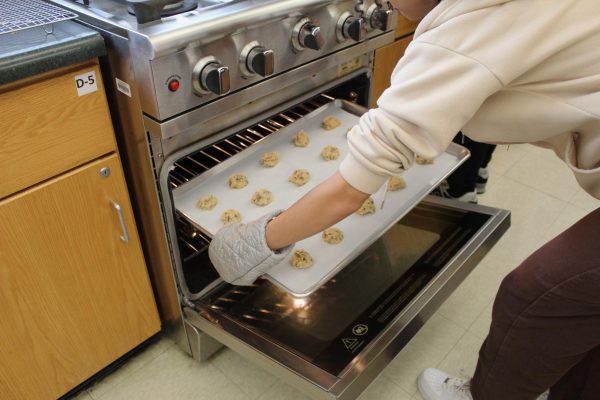A Five In Experience
A deep dive into the AP environment.
While discussing the upcoming AP exams, Mr. Segall explains how “taking your first AP exam is stressful, but if you do the protective measures to learn as much content as you can [and] practice as many skills as you can, when you go into it, despite it still being stressful, you can rely on the fact that you’re comfortable in the content and the skills and that brings some sort of comfort during it.”
May 20, 2022
Every year when May rolls around, hundreds of students sit down for their first AP exams. Anxiety courses through their veins as they approach the testing room. But they’re ready, they’ve prepared for this moment since September.
One way that helps AP students prepare is by “hacking the test”. Sophomore Vama Arora talked about how she’s preparing for her first AP US History exam and explains how it is also important “to master the type of question, not the content.” Vama uses multiple choice practice tests to help her when studying “because the AP exam is set up in a different way than the standardized test.”
For others, it isn’t “hacking the test” that helps them, but forming a collaborative group and studying the content of the class. APUSH teacher Mr. Segall recalled a memory from his junior year US History class about how he and his classmates formed “a collective group in high school” and “started studying very early.” He explains how “working with other people collaboratively like you do in class everyday would be effective.” For Mr. Segall, it is the group studying technique that helped him the most when he was preparing for his AP test.
We all assume that AP students and teachers have a natural talent for being excellent test takers, but that is not always the case. AP Computer Science teacher Mr. Cohen explains how even though he teaches an AP class now, he “never did well on any of [his] tests so [he] either knew it or [he] didn’t. To this day [he’s] never studied for a single test.” He recognized that the studying is the entire class itself. Instead of cramming at the end, working hard throughout the year and knowing the information is what is going to help you score well on the exam.
At the end of the day, whether you are a test hacker or team player, it’s the experience that counts. When you take a deeper look at AP students, it isn’t the five on the exam that matters, but it is the skills that they build along the way that stick with them. Mr. Segall believes that one of the best skills you get from AP is a sense of independence: “I think the benefit is that you build a lot of independence skills like being able to work and manage yourself without having a teacher kind of over your shoulder.”
Vama Arora experienced this sense of independence firsthand, sharing how in APUSH “a lot of the responsibility goes on you so [she] learned more about self reliance because you can make all these charts and submit all your assignments but if they aren’t quality work they’re not going to help you.” AP classes are a competition against yourself, and Vama along with many other students understand this. While these classes may seem like they are specifically designed to help you get a good grade on a test, in reality they provide you with a unique classroom experience and help build skills that you can use for the rest of your lives.


